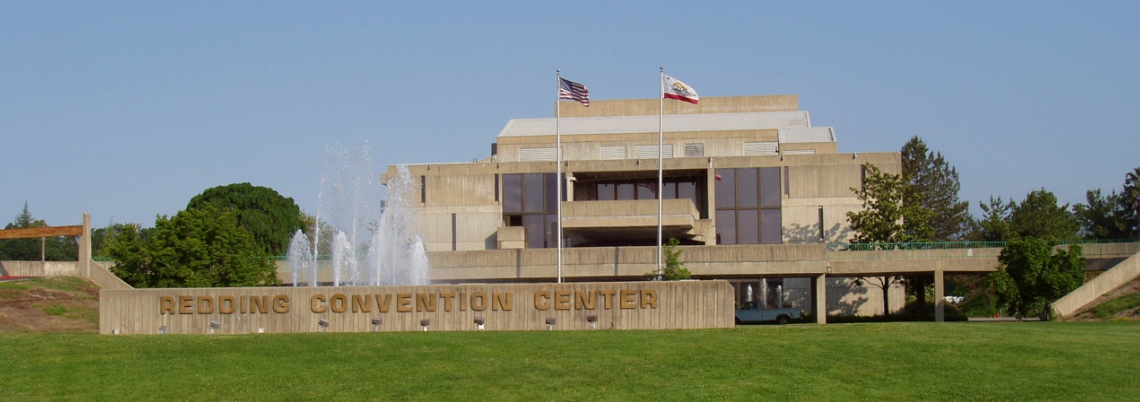There is a lie so demonically destructive that it has literally rewritten the history of the world, and yet this lie is so entrenched in Christian thinking that it’s rarely questioned.
In fact, most believers have heard the lie so many times that they actually assume it’s a verse in the Bible. It kind of reminds me of one of my mother’s famous sayings, “God helps those who help themselves.” She repeated it so often that I was shocked when I started following Jesus, read the entire Bible and couldn’t find that verse anywhere! In fact, I found the Bible to be quite the opposite of my mother’s mistaken understanding. I discovered that God helps those who can’t help themselves, won’t help themselves and who don’t know how to help themselves!
WHAT LIES ARE YOU UNCONSCIOUSLY BELIEVING?
Yet the lie I am referring to is not like my mother’s innocuous quote mistaken for a Bible verse. No!
This lie actually undermines the destiny of nations, decommissions the weapons of our warfare, and derails the great commission.
One of the simplest ways to get people to believe anything, (be it true or false), is to repeat it often. No one in modern history has ever done this better than Adolf Hitler. Hitler knew that if he confidently repeated his propaganda long enough, the masses would eventually assume it to be true. So persuasive was his lying ideology that he literally convinced an entire nation to genocide their Jewish friends and neighbors for the common good. Six million Jews were murdered at the hands of a compulsive liar! This should serve to remind us of the power of repetition and the utter depth of deception.
Okay Kris, no more suspense, what’s the lie? One of the most destructive lies of all times is that “In the last days the church will get brighter and brighter while the world gets darker and darker!”
Jesus clearly stated the status of light when He proclaimed, “You are the light of the world. A city set on a hill cannot be hidden; nor does anyone light a lamp and put it under a basket, but on the lamp stand, and it gives light to all who are in the house. Let your light shine before men in such a way that they may see your good works, and glorify your Father who is in heaven.”
TURN ON THE LIGHTS, CHURCH!
The apostle Paul did speak of a dark time in the last days. Most of us have read his commentary as a description of only the world. Read it for yourself, “Realize this, that in the last days difficult times will come. For men will be lovers of self, lovers of money, boastful, arrogant, revilers, disobedient to parents, ungrateful, unholy, unloving, irreconcilable, malicious gossips, without self-control, brutal, haters of good, treacherous, reckless, conceited, lovers of pleasure rather than lovers of God, holding to a form of godliness, although they have denied its power; Avoid such men as these.” (2 Timothy 3:1-9)
Did you notice that the list includes “Holding to a form of godliness although they denied its power.” That line certainly doesn’t sound like a description of the world; this sounds like a powerless, harmless, fruitless church! In other words, the light went out in the Church and that’s the reason the world got dark. Dark times were perpetuated by the “last one out, turn out the lights” mentality.
Yet I propose to you that our Kingdom motto should be, “The first one in, turn on the lights!” In fact, that actually is what Isaiah prophesied 500 years before Christ! He proclaimed, “Arise, shine; for your light has come, and the glory of the LORD has risen upon you. For behold, darkness will cover the earth and deep darkness the peoples; But the LORD will rise upon you and His glory will appear upon you. Nations will come to your light, and kings to the brightness of your rising.” (Isaiah 60:1-3)
Did you catch that the backdrop of our ascension was deep darkness? Yet the connotation is that it was the dissension of the people of God that was responsible for the deep darkness in the first place! I really like the way Jesus put it. Speaking of our body He explained, “If the light that is in you is darkness, how great is the darkness!” (Matthew 6:23)
It’s like the old rock song, “The night the lights went out in Georgia.” If the Church of Jesus Christ is the light of the world, then what happens to the world when believers turn off the lights and pull down the shades? Can anyone say UGLY?
It is therefore incumbent upon us as the people of God to not curse the darkness, but instead, stand boldly in the midst of the thick gloom and shine!
WHAT DOES LIGHT PRACTICALLY LOOK LIKE?
As Heidi Baker famously put it, “Love looks like something!” I agree. But if love looks like something then so does light! In fact, Jesus said that the eminence of His light flowing through us is “good works.” The point is that good works illuminate the nature of a great God.
It is one thing to do something extraordinary, but the most profound impact on society might actually be doing ordinary works in extraordinary ways.
The famous story of the Queen of Sheba coming to Israel to experience Solomon’s wisdom is a case in point. The Bible says, “When the queen of Sheba perceived all the wisdom of Solomon, the house that he had built, the food of his table, the seating of his servants, the attendance of his waiters and their attire, his cupbearers, and his stairway by which he went up to the house of the LORD, there was no more spirit in her.” (1 Kings 10:4-5)
She went on to describe Solomon as much wiser than she ever imagined. But Solomon’s spiritual wisdom was demonstrated through really practical things; I mean how do you set a table in a way that people say, “I see the wisdom of God all over that girl!” I am not sure. Or how do you dress your waiters in a way that people are stunned by the brilliance of God? I really don’t know, but there is something amazing about heavenly wisdom that has an earthly manifestation and then meets the felt needs of people.
Could it be that these are the kinds of “good works” that are lighting up the darkness, illuminating cities and shifting atmospheres? Might it be that meeting the simple, felt needs of our cities in extraordinary ways is actually what drags communities out of the cesspool of despair into the wellspring of hope?
THE TRUTH ABOUT THE LIGHT YOU CARRY
If we are going to be a force of hope in our communities then we must ditch the passivity that is present in the philosophy of so many Christians. I am often taken aback by the way Believers describe Jesus; they make Him sound like a Buddhist monk instead of a radical world changer!
Passivity has never worked for me. It’s not that I like to fight; I really don’t, but I hate feeling powerless, helpless or feeble. The challenge for me is that Believers today often embrace passivity as peace and never really move the world into a better place.
The peace of God does surpass all understanding but it is also the main attribute of the Prince who crushes Satan under His feet. Therefore, peace isn’t the absence of conflict but the presence of wellbeing, the sense of security and the awareness of a hopeful future in the backdrop of whatever may come our way.
People speak of darkness as if it is the most dominant force in the world; as if darkness is forcing light out of the world. But nothing could be further from the truth! It’s light that is stalking the darkness!
The goodness of God is overwhelming evil; truth is overcoming lies, and it is the power of the Spirit that is displacing the powers of darkness!
But the power of our message is not in our words but in our works. Ours is a living message preached through practical solutions to difficult situations, not that we talk about, have a vision for, or that we strategize over…these things are necessary, but WE MUST ACTUALLY DO THEM!
DITCHING PASSIVITY
The road to hell is paved with good intentions. I can tell you that I have had it with people who want to analyze situations until they are paralyzed with fear. They are often afraid of what people are going to think, what may happen if it doesn’t work, or how it is going to affect their reputation. Honestly, I couldn’t give a rip!
No matter what you do some people will hate you. Get over your obsession with pleasing people. Furthermore, a hundred percent of what you don’t try to fix will fail, so at least make an effort for God’s sake. And finally, remember most heroes were celebrated after they died, so you will probably have a great reputation after you are dead. Come to think of it, that’s what funerals are for; they always say nice things about dead people at funerals, (even scoundrels), so you are bound to end well!
Another challenge is that Christians are notorious for arguing over their end time theology, while the world burns down around them. If you have an eschatology that doesn’t inspire hope in your city, scrap it and find another one. Jesus is the hope of the nations and any worldview that doesn’t breathe hope is rooted in a lie! Ultimately, we need our cities to prosper in felt ways through good works that shine the light of hope to a desperate world.
SERVING THE 7 MOUNTAINS
Let me close with some thoughts on HOW we are to impact the world. There’s so much confusion over something called the Seven Mountain Mandate. Often people interpret this language as if the church should take over the world. But nothing could be further from the truth! We are called to SERVE in a way that brings out the best in everyone. I think Constantine proved that forcing Christianity on everyone was a bad plan and a failed experiment.
Like Joseph and Daniel of the Old Testament who served secular kings, we are called to serve everyone and help them fulfill their divine destiny. Jesus made it clear that people who want to lead or be great must be the servants of all. Serving is the way of leadership in the Kingdom.
Forcing our way onto the world is not great leadership. Some accuse us of doing this very thing because we speak up on moral issues. It is important that we speak up on issues, but it’s also equally important that we love everyone no matter their persuasions.
Someday Jesus will rule the world, in the meantime, we should just serve really well and let our good works speak of our Father who loves everyone.
So today I want to propose the question to you—what can YOU do to let your light shine brighter than it is right now? How do you plan to serve the world? I’d love to hear testimonies and your thoughts in the comments!




